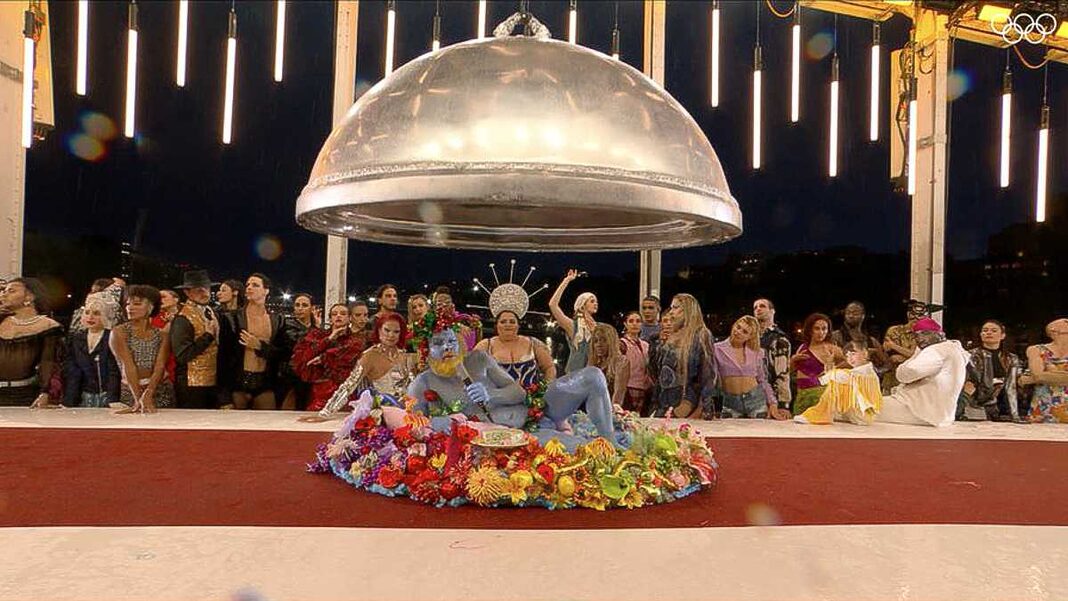In a situation I couldn’t escape, I recently overheard women in Middle America deep into their forties — these being professionals with advanced degrees — on a work call, sounding like the teenage bimbos on Sir Mix-A-Lots’ “Baby Got back”:
Like, seriously? (upward inflection on the y), WTF?
Related: Katy Perry Plunges Pop to Cringe New Low
Via Los Angeles Times (emphasis added):
“The origins of the Valley girl accent have long been an enigma*, though it’s thought to have emerged as a phenomenon sometime in the ‘80s. It was first properly contextualized for the masses in 1982 through Frank Zappa’s satirical song ‘Valley Girl,’ in which his 14-year-old daughter Moon Unit speaks in exaggerated ‘Valspeak,’ mirroring the language she’d learned from other kids in the San Fernando Valley. ‘Like, my mother is, like, a total space cadet,’ Moon says, as the chorus croons ‘Valley girl’ on repeat between lines. ‘She, like, makes me do the dishes.’”
*In no way whatsoever is the Valley girl accent origin an “enigma”; it is entirely clear that the enormously influential pop culture machine, anchored in California, disseminated it throughout the country beginning in the 80s until it was burrowed deep in the zeitgeist.
Aversion to the Valley girl accent — in which every declarative statement is indistinguishable in tonal emphasis from a question — is somehow “linguistic misogyny,” according to the Los Angeles Times columnist, although she hits on the disturbing and most pertinent fact, albeit in passing, regarding the Valley Girl-ism, which is that it managed to go global, assisted by the engine of pop culture.
Continuing:
“Yet in a globalized world where languages and accents are instantaneously broadcast and absorbed, how particular is the Valley girl accent to the actual San Fernando Valley or even to girls? Many of its signature features — the creaky voice, the upward inflection and the liberal usage of ‘like,’ ‘whatever,’ ‘totally’ — can be found elsewhere in the world, pre-date the ‘80s and aren’t exclusive to women.
Yet somehow the combination of the above, transmitted through the voice box of a young adolescent woman, has become such a distinct trope that it’s been relentlessly skewered on TV shows and late night specials over the decades. In fact, the mockery and parody of the Valley girl accent has been described as ‘linguistic misogyny,’ as one scholar put it, and the stigma is so strong that ‘[the] habitual use of creaky voice has been shown to undermine the success of women on the labor market.’…
‘It is incredibly useful as a coping mechanism,’ [Samara Bay, a celebrity speech coach] says. For instance, speaking with a vocal fry conveys a sense of nonchalance or detachment. ‘As a young woman — with all of the stereotypes around naivete and bubbly overenthusiasm — to seem detached is a great way of saying, ‘I’m good and I don’t need your approval’.”
At some point in the last three decades, the cringe ramped up as Valleyspeak merged inexplicably with the Unholy Trinity of New Age pseudo-mysticism/corporate jargon/Social Justice™, so that its practitioners absorbed the following phrases into their parlance:
- “Space.” You “hold space” for this or that; you move into “this space” or “that space”; everywhere is a “space”; some are safe and some are unsafe; whites and/or men but especially white men are not allowed in many of them for Diversity™ reasons — but they’re all “spaces.”
- “Journey.” Everyone is on a “journey” — their own special adventure. Millennial women describe their mind-numbingly mundane lives — headed for nowhere — as “my journey” because “my life” is so passé
- “Invite.” When a New Age MTV bimbo wants to tell you to do something, they “invite” you to do it. “Inviting” you to do the dishes is the same command as telling you to do the dishes, but the former sounds less demanding. George Carlin was prophetic when he described the “softening” of the English language
All of this to say: I have never been more comforted in my decision to move abroad in 2016, as, although I love many aspects of Americana, I might have gone postal at some point if subjection to this brand of nonsense were a necessary and regular part of my work or social life.
Ben Bartee, author of Broken English Teacher: Notes From Exile, is an independent Bangkok-based American journalist with opposable thumbs.
Follow his stuff via Substack. Also, keep tabs via Twitter.
For hip Armageddon Prose t-shirts, hats, etc., peruse the merch store.
Support always welcome via the digital tip jar.
Bitcoin public address: bc1qvq4hgnx3eu09e0m2kk5uanxnm8ljfmpefwhawv







